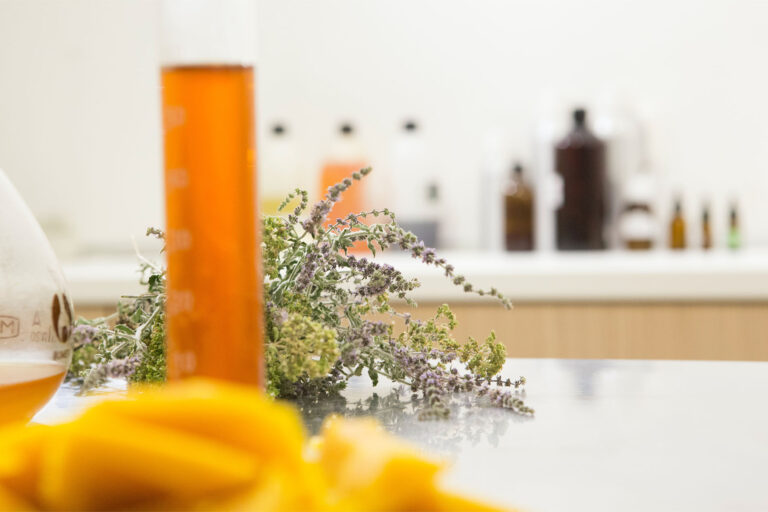Making the case for chemicals
If we look in the dictionary, we find that the word chemical means: made by or used in chemistry; made with or operated by chemicals; or any substance used in or obtained by a chemical process. A chemical element is any substance that cannot be separated into different substances except by radioactive decay. All matter is composed of such substances. Matter can not be created nor destroyed but may change its form, such as occurs in a chemical process.
Chemical process can occur within living organisms or from nonliving sources. In the early 1700s, it was believed that chemical synthesis could occur only in living organisms and organic compounds were defined as coming from living organisms, whereas inorganic compounds come from nonliving sources. This belief was called “vitalism” and is still held today by some. However, today, we know that chemical synthesis can occur outside of living organisms.
Organic compounds are the compounds made up of the chemical element carbon. Inorganic compounds do not contain carbon. Inorganic chemicals include sulfur, oxygen, nitrogen, silver, copper, etc. Living things are composed primarily of organic compounds but the organic compounds also have lots of hydrogen and oxygen with small amounts of other inorganic elements sulfur, copper, magnesium, etc. When living things die, these organic compounds may change form to become compost, or with even greater time, petroleum.
All things originating from living things are organic but anything containing carbon is also organic. The food we eat, the wood to make our homes, the clothing we wear (whether natural cotton or polyester), gasoline, propane, rubber, plastics, medicines, pesticides, herbicides, all are made from organic compounds. Man has used organic compounds for thousands of years dating from the ancient Egyptians and Phoenicians who used chemicals obtained from living organisms to dye cloth. The making of wine was known in biblical times and required the action of a living organism, bacteria, which was used as a chemical produced by the grape, sugar, to synthesize alcohol. To make wine to drink requires the physical intervention of man to bring the grape and the correct bacteria together.
A synthetic is something produced by chemical synthesis, rather than of natural origin. Inorganic oxygen is a requirement for man, but when oxygen enters into chemical reactions in our bodies, or in our plant, new forms of oxygen are made that are toxic. Our bodies process nitrogen to synthesize urea and process oxygen to synthesize hydrogen peroxide. These are natural processes but both compounds can be synthesized in chemical reactions outside our bodies.
In the early 1800s, Friedrich Wohler found that urea could be made simply by evaporating an aqueous solution of ammonium cyanate. It could be argued that a vital source intervened in this process, from a physical standpoint “man-made”. Nevertheless, no matter how urea and hydrogen peroxide are synthesized, they are still urea and hydrogen peroxide. Both have useful purposes when chemically synthesized (man-made). Urea is used as fertilizer and hydrogen peroxide as an antiseptic.
We cannot argue that “natural” vitamin C made by citrus fruit is healthier than the identical “synthetic” vitamin C. The alcohol in wine may taste good but has serious health implications. Medications are useful when used as prescribed but harmful if used inappropriately.
So organic compounds, whether synthesized “natural” or “man-made”, can have good or bad effects. It is up to us to become educated about how we use any chemical, natural or man-made, to protect our environment and ourselves yet provide for life in abundance. So when hearing the words, synthetic, organic, man-made, natural and/or chemicals, please take a moment to determine what is really being said.
CHEMICAL FERTILIZERS: THE BREATH OF LIFE
Sound farfetched? Not at all! For all the environmental activist’s complaints about chemical fertilizers, they might be amazed (and more than a little enlightened) to find out what these so-called curses of humanity have to do with their continued and healthful existence. Consider: For each ton of CO2 the corn plant inhales, three-fourths of a ton of oxygen is exhaled back into the atmosphere. In 1992, a 9.2 billion bushel corn crop exhaled 593 million metric tons of oxygen back into the air, enough to support every man, woman, and child on this plant for a year! Ponder… What kind of crop, what kind of oxygen replenishment would we have had without chemical fertilizers? Instead of pillorying chemical fertilizers, perhaps environmentalists should check a mirror as to who is really culpable. For they, unlike plants nurtured by chemical fertilizers, exhale CO2, not oxygen. Using their logic, we should eliminate humans and save the planet. You’ll also learn in this issue of the Fluid Journal how effectively the corn plant and other crops remove CO2 from the air to counterbalance the quantities put in by fossil fuels and by Mother Nature. You’ll be shown how increasing quantities of chemical fertilizers above current levels could raise yield averages to help sequester even more of the CO2 that contributes to global warming. Featured also is an update on the unfolding technology of precision farming and its vital role in protecting our environment.
Related Posts

Harnessing Soil Microbiome Breakthroughs: Maximize Yields with MultiFIX
Harnessing Soil Microbiome Breakthroughs How MultiFIX Boosts Nitrogen Fixation and Crop Yields The soil beneath every successful crop is more than just dirt—it’s a living

Boosting Your Soil Health: Native vs. Non-Native Microbes
There is some debate among growers over whether or not to introduce non-indigenous microbes, or to simply feed the microbes, the native microorganisms, already present in the soil.

Why Soil Microbes are Important
Why Soil Microbes are Important Release the hidden power of your soil The soil beneath every thriving farm is a battlefield. Microbes, such as bacteria

MultiFIX boosts auxin production
MultiFIX boosts Auxin production Unleashing the power of Auxin for conventional farmers Auxin production is pivotal for successful crop growth, and for conventional farmers looking

Agrochemist doubles speed of organic substance decomposition
“At the stage of decelerated decomposition, the activity of both plant remains and decomposition of organic substances highly depended on added glucose, which led to microbial consumption of organic substances from the soil. Generally, our results are important for analyzing the influence of different carbon sources, such as products of roots or microbes, on short- and long-term organic substances turnover,” said Yakov Kuzyakov, a co-author of the work, and a Ph.D. in biology from RUDN.

Boosting Microbial Populations & Plant Nutrient Uptake in the Rhizosphere
The relationship between boosting microbial populations and plant nutrient uptake in the rhizosphere is a fundamental aspect of successful agriculture. By embracing practices that enhance microbial populations, farmers can unlock the door to a more resilient and productive agricultural future.

Power from the ground: Microbial Electrogenesis explained
The phenomenon known as microbial electrogenesis is opening new doors in agriculture, offering a potential game-changer for increasing crop productivity sustainably.

Repairing compacted soil on your farm with one easy step!
Repairing compacted soil on your farm with one easy step! MultiFIX The Optimum Food for Microbes not only builds up healthy microbes already in your

Soil Analysis and Soil Science
Soil pH, color and conditions can all contribute to increasing crop yield and quality.

Making the case for chemicals
Chemicals! Synthetic! Man-made! These words have come to leave bad feeling for many people, whereas natural and organic leave good feelings. Why? Let’s talk for a while about these words.

MultiFIX — What it is and why your soil needs it
MultiFIX: What it is and Why Your Soil Needs It Healthy soil is the secret to farming success, and thriving microbes are the powerhouse behind



